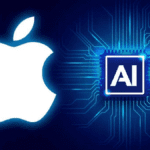
Web3 refers to the next generation of the internet, where the focus is on decentralized networks and applications. It is a network that enables peer-to-peer transactions and interactions, removing the need for intermediaries such as centralized organizations and corporations. The rise of the internet and advancements in technology have led to a significant shift in the way goods and services are exchanged, as well as how people engage with each other and the world around them.
Web3 is poised to play a major role in shaping the future of the digital economy. With its focus on decentralization, privacy, and security, it has the potential to disrupt traditional systems and provide a new level of trust and accessibility in the digital space. As the digital economy continues to grow and evolve, Web3 is expected to play an increasingly important role in shaping its direction and impact.
Decentralization and trust
One of the key features of Web3 is its decentralized structure, which eliminates the need for intermediaries and centralized organizations. This allows for greater transparency and accountability in transactions and interactions, and provides a new level of trust in the digital space. So it has the potential to significantly disrupt traditional systems and improve trust in the digital economy.
Increased financial accessibility
Another potential benefit of Web3 is increased financial accessibility. With its decentralized structure, Web3 has the potential to provide financial services to underbanked populations, who have been traditionally excluded from traditional financial systems. This has the potential to increase financial inclusion and provide new opportunities for economic growth and development.
Improved data privacy and security
Web3 is also expected to improve data privacy and security in the digital economy. With its decentralized structure and cryptographic technologies, Web3 has the potential to provide a new level of privacy and security in the digital space. This is particularly important as concerns around data privacy and security have grown in recent years, as traditional centralized systems have become vulnerable to data breaches and other security threats.
The growth of decentralized finance (DeFi)
Decentralized finance (DeFi) refers to financial applications and services that are built on blockchain technology and operate in a decentralized manner. The growth of DeFi has been one of the most significant developments in the Web3 space, and has the potential to disrupt traditional financial systems and provide new opportunities for financial innovation and growth. With its focus on decentralization, trust, and accessibility, DeFi is expected to play a major role in shaping the future of the digital economy.
Technical hurdles
The adoption of Web3 is faced with several technical hurdles, including scalability, interoperability, and user experience. To be widely adopted, Web3 must be able to effectively scale to meet the needs of a growing user base and handle large volumes of transactions. It must also be able to effectively interoperate with existing systems and technologies, and provide a seamless user experience that is easy to use and understand.
Regulatory uncertainty
Another challenge to the adoption of Web3 is regulatory uncertainty. The regulatory landscape for Web3 and blockchain technology is still developing, and there is a lack of clear and consistent regulatory guidance. This creates uncertainty for businesses and individuals looking to participate in the Web3 ecosystem and can impact innovation and growth in the space.
Lack of public understanding
A lack of public understanding of Web3 is also a significant challenge to its adoption. Many people are still unfamiliar with the concepts of Web3 and blockchain technology, and there is a need for education and awareness-building efforts to help increase understanding and adoption.
Competition with traditional finance
Web3 is also facing competition from traditional finance systems and technologies. Traditional finance systems have been developed and refined over many years and have a well-established user base. For Web3 to be widely adopted, it must provide compelling benefits and value propositions over traditional finance systems and be able to effectively compete with them.
The digital economy is rapidly evolving, and the role of Web3 in this evolution is an important topic for further exploration and discussion. While there are challenges to its adoption, the potential benefits of Web3 are significant, and its impact on the future of the digital economy is likely to be far-reaching. Given the potential of Web3, it is important for individuals, businesses, and governments to engage in further exploration and adoption of this technology. This will require a better understanding of Web3, as well as investment in research and development to overcome technical hurdles and improve the user experience. By working together to drive innovation and growth in the Web3 space, we can help shape the future of the digital economy and create new opportunities for economic prosperity and progress.




